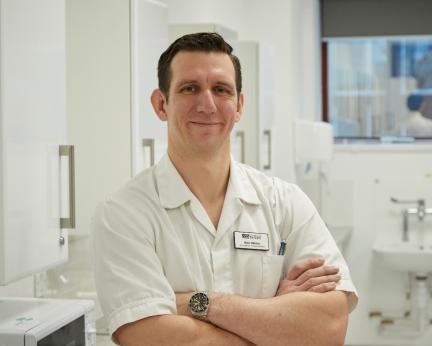After leaving the armed forces, I tried many different roles including lorry and digger driving, conservation and surveillance. It wasn’t until I became a staff trainer in the care sector that I found a role which felt right and I could use some of the skills I learned in the Army. I really enjoyed this role for over nine years, but some major life events led to me reviewing what I wanted out of life, once again.
I felt that I wanted to do more, I wanted to be the person others made referrals to, and I wanted to have a profession which gave me a sense of identity and I knew that I could achieve it.
After graduating, I worked in a community learning disabilities team which was the job I wanted when I decided to become an occupational therapist. The team had a wealth of experience and knowledge and everyone was happy to help and offer advice and support when I needed it. The management and leadership were second to none, they were personable and supportive in helping me manage my caseload, while also ensuring I met deadlines and completed my tasks.
After a year with this team I was offered a job at a higher pay band working for a charity with veterans suffering from PTSD. Unfortunately due to relocating back to Devon I was unable to continue working for this charity and now I work for Dame Hannah Rogers, a charity which provides residential and respite care for adults with learning disabilities and complex postural and health needs.





